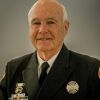Whether you know it or not, every fire department has its own culture. If you haven’t explored what your department’s culture is, then chances are you’re not the one driving its values. Let me explain.
Recently, I re-read Ann Rhoades’s book “Built on Values.” One reason I decided to read it again was that the late Stephen R. Covey wrote the foreword. Covey was one of my favorite authors who focused on leadership, and who wrote classic books, like “Principle-Centered Leadership.”
Covey put forth that the leaders of any organization clearly set the direction and values that subordinates follow. In the case of a fire/EMS department, it means the chief, along with their assistant chiefs and officers, set the tone, not just by edict, but also through their example.
Evaluating department culture
What are the values of your department? They may include words like safety, caring, integrity, passion or even fun. Other departments may foster quality/professionalism, trust, ownership (which Chief Alan Brunacini called empowerment) or a one-team concept.
Let’s take a closer look at some of these values:
- Safety – an awareness and condition that lessens the chances of danger, injury and damage.
- Caring – genuine concern for the welfare, safety or comfort of another.
- Integrity – the quality of being of sound moral principle, honesty and sincerity.
- Passion – an intense drive or enthusiasm to a cause.
- Fun – a source of enjoyment and amusement.
- Quality/professionalism – striving for the highest degree of excellence; the status of reaching the highest standards of a profession.
- Trust – having confidence placed in someone to act faithfully in the performance of their duties
- Ownership/empowerment – possessing a rightful part of something, and the power and authority to act in a given situation.
- One-Team – a group of people working together in a coordinated effort with every member contributing to the team or, as the Musketeer’s slogan read, “All for One, and One for All”!
Actions speak louder than words
After reviewing the Value Statement for your department, do you feel comfortable that your organization “lives” those values every day, on every call, by every crew or unit? If not, why not?
Perhaps you should ask the question, “Are these values being communicated daily to your firefighters via your actions and those of your officers and not just given lip service?” After all, your actions speak louder than your words.
How are you keeping all the members, including yourself, accountable to these values?
Is it time to revisit your existing values and either reaffirm or alter them, especially for the benefit of your newer members?
Remember that when introducing or reintroducing an organization’s values to its members, they will first look to you to see how you act within those guidelines. It may be an informal challenge, or it may be a test of whether you clearly believe in those values. Their test will somehow show whether you are personally committed to the department’s Values Statement.
For example, if a citizen or their family has an unexpected need during an emergency call, can an officer act on that need, believing it is reasonable to fulfill their request within the latitude given to them by the department’s value of empowerment? How you, as the chief, back that decision, either on its merit or as a teaching example, is vital to show the department that you are dedicated to the empowerment value.
Another frequent test may be your personal enthusiasm for the way you approach your own workload. Your firefighters will expect you to have the same or greater passion for your work as chief, as they do for being firefighters.
A great motivational speaker and author of the 20th century, Dale Carnegie, put it succinctly, “Act enthusiastic and you’ll be enthusiastic.” Try it. You will find enthusiasm is contagious, and that it will cement your department’s value system each time you uphold those values through your own actions as you interact with one or more of your firefighters.
This article, originally published on May 06, 2019, has been updated.














